- (212) 444-9511
- office@worldmh.org.il
- Sun-Fri: 9:00am-5:00pm
Ideology Bank
- What is Zionism?
- Modern Zionism
- Ze’ev Jabotinsky and Revisionist Zionist Revolution
- World Herut
- Eretz Yisrael: the Land of Israel
- Zionism as the Indigenous Rights Movement of the Jewish People
Zionism, by definition, is the belief in the right of the Jewish people to self-determination and sovereignty in their indigenous homeland, the land of Israel.
Zion (Hebrew: צִיּוֹן Tziyyon) is mentioned over a hundred times in the Tanakh in reference to the center of Hebrew civilization; Jerusalem and the specifically the Temple Mount. In the golden age of ancient Israel, Zion came to represent Hebrew unity, national and spiritual oneness. So when foreign conquerors invaded our homeland (Assyrians, Babylonians, Greeks, Romans, Arabs, or Brits), it was Zion that served as the Israelite national rallying cry for liberation. In 135 CE, when the Jewish general Shimon Bar Kokhva fought the Roman Empire and re-established an independent Jewish state for two years, the coins he minted read “For the Freedom of Zion.”
Naturally, when the “children of Zion” (Lamentations 4:2) were finally exiled by their enemies, Zion became a symbol for Jews in every corner of the Diaspora. A symbol of the homeland they longed for and prayed to return to, three times a day.

For nearly two thousand years of exile the Jewish people suffered terrible persecution at the hands of their host governments and peoples. In Arab/Islamic countries in both Africa and the lands of the east, Jews were relegated to second class status (Dhimmi in Arabic) where they were often victims of massacres and institutional (legal) humiliation. In Ethiopia, Jews were designated landless foreigners (Falasha in Ge’ez), and suffered innumerable genocides, enslavements, and forced Baptisms. In Europe, Jews were hounded as Semitic foreigners for their Hebrew faith, culture, and appearance. Pogroms (massacres) in Europe were a regular occurrence, and until the Emancipation movement in the 18th century throughout Western Europe most Jews were legally confined to Ghettos, prevented from holding certain jobs, and from owning land. Informed by the spirit of the 19th century rise of nationalism in Europe, a number of Jewish spiritual leaders and intellectuals responded to global anti-Semitism and the degraded and at-risk state of the Jewish people by advocating a return to their ancestral homeland: Zion.
In the 1840-60s Rabbis Yehudah Alkalai, Tzvi Hersch Kalischer, and Moshe Hess laid the ideological framework for motivating a mass return to Zion for the children of Israel in exile in based in both religious, socialist, and nationalist philosophical underpinnings.
Influenced by the teachings of Rabbi Alkalai and after witnessing French society (the birthplace of the Emancipation) both devolve and relapse into vicious anti-Semitism during the Dreyfus Affair (https://en.wikipedia.org/wiki/Dreyfus_affair), Binyamin Ze’ev (Theodor) Herzl wrote the “Jewish State” and began to rally Jewish leaders around the notion of a Hebrew Homeland as a solution to global anti-Semitism. Fourteen years earlier, after experiencing savage pogroms in Russia, Leon Pinsker likewise came to the conclusion that the answer to perpetual Jewish suffering in Europe was a Jewish return to national consciousness and self-determination. That Hebrew freedom can only be achieved through our own efforts; “auto-emancipation.”
The World Zionist Organization was established in 1897 at the First World Zionist Congress where Jewish leaders set out the movement’s short term goals in accomplishing a return to the Jewish people’s ancestral and indigenous homeland, as well as re-establishing Hebrew sovereignty there.
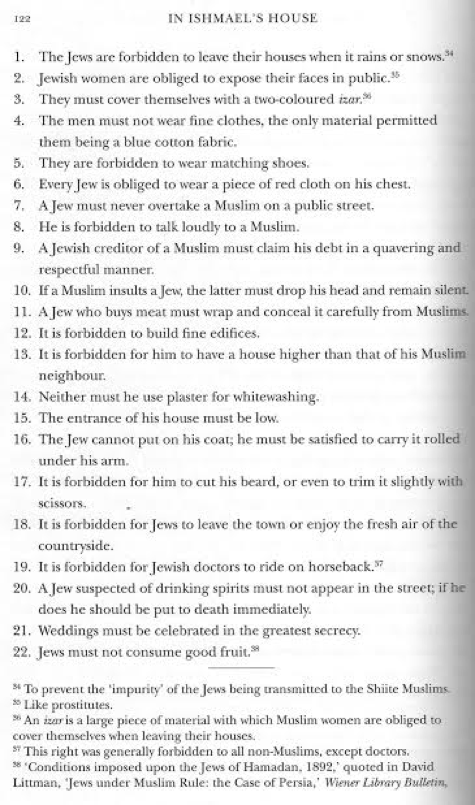
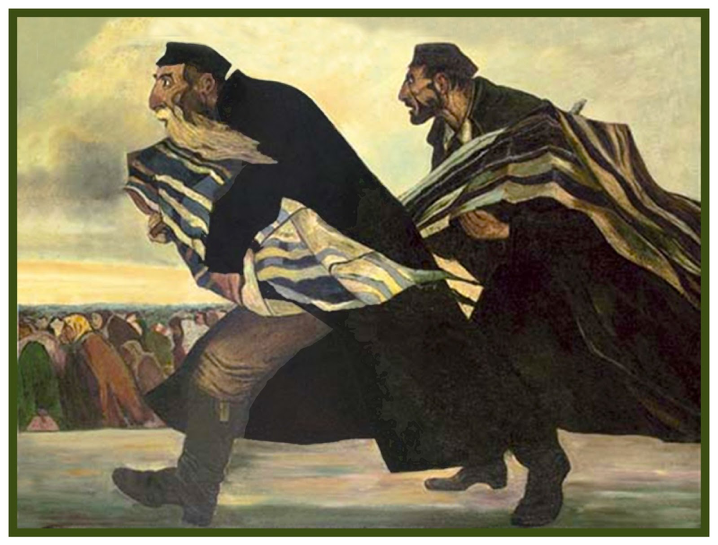
Staunch anti-assimilationist Ze’ev Jabotinsky may have inherited the national pride and self-actualization tenets of the Zionist ethos from the likes of Herzl and Pinkser, but he quickly made it his own. Amidst the outbreak of bloody anti-Semitic pogroms that struck Russia in the turn of the century, Jabotinsky founded the Jewish Self-Defense Organization; where he began to preach his message of Jewish strength and honor in the face of our enemies as well as the personal struggle that the establishment of a Jewish state demanded from each individual Hebrew. His prolific writing and oratory skills propelled his election to the Sixth World Zionist Congress in 1903.
In 1923, Jabotinsky left the mainstream Zionist movement to found the Alliance of Revisionist Zionists. Jabotinsky revisioned the Zionist movement as one that was not only focused on re-settling the land of Israel, but was unequivocally advocating for the establishment of a Jewish state on both sides of the Jordan river and was preparing its people to defend themselves and fight for their right to their ancestral homeland. Jabotinsky’s proudest achievement was the establishment of the Jewish legion that fought alongside the British against the Ottomans in WWI. This and Jabotinsky’s own military training of Jews in the land of Israel, infused the Jewish people with a warrior spirit that inspired the Jewish Revolt against the British in the 1940s, which ultimately led to the establishment of the State of Israel in 1948.
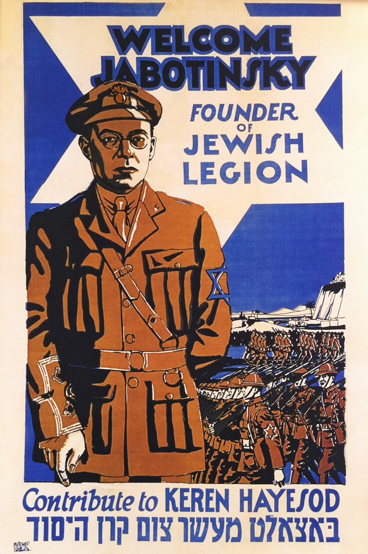
Upon the reestablishment of the independent State of Israel, former Irgun leader Menachem Begin and his compatriots founded the political party Herut. Herut quickly became one of the nation's largest parties, winning 14 seats, 11.5% of the votes, in the Israeli government’s first election in 1949. In 1965, to gain strength in the Knesset, Herut merged with several other liberal parties which shaped Gahal (Gush Herut Liberali), that developed into the Likud. In 1977 national elections, Gahal won and formed the government, making Menachem Begin Prime Minister. In 1988, the Likud dissolved its internal factions, including Herut, to become a unitary party. In 1992, the Labor party lead by Yitzchak Rabin won elections and signed the Olso Accords ceding large swaths of Judea, Samaria, and Gaza to the newly formed Palestinian Authority. In the aftermath of the Second Intifada and 1,000 murdered Israelis (organized by this same Palestinian Authority), the Likud returned to power in 1996. Instead of reversing the Oslo Accords, the government continued to cede land, including most Hebron and 2% of Samaria in 1999. Those true to the principles of Jabostinsky understood this as a violation of fundamental Jewish rights advocated by Zionism, and a dangerous chink in the “Iron Wall” strategy of deterrence and Israeli survival.
As a result, Benny Begin, Michael Kleiner, and David Re’em broke away from Likud during the 14th Knesset and formed the new Herut party in 1999. The breakaway was explicitly caused by disagreements with the Likud leader, Benjamin Netanyahu, over these aforementioned compromises produced by the Wye River Memorandum and the Hebron Agreement. The New Herut – the National Movement, as political party participated in the 1999, 2003, and 2006 elections. However, by 2009 the founders of the New Herut party reintegrated with the Likud.
Nevertheless, those true to the Herut ideology continued to advocate for the integrity of the land of Israel and the unity of the people of Israel. Herut continues to be registered in the Israeli government's Party Registry. The Herut party remains intact and reserves the right to compete in future elections, should suitable circumstances arise.
In 1999, when Benny Begin and Michael Kleiner split from the Likud on the political level, Karma Feinstein-Cohen, along with other Jabotinsky ideological adherents, left the Betar youth movement to start World Herut and its youth movement, Magshimey Herut (achievers of liberty); the reborn Jabotinsky movement for Zionist education and activism.
World Herut has established itself as an independent non-profit organization in eleven countries throughout the world. Each separate organization provides educational services for the participants located in their respective host countries. World Herut initiates, promotes, and supports the activities of students, olim (Jews returning to Israel) and social action groups which are consistent with the Movement’s objectives. World Herut works in conjunction with the World Zionist Organization, the Jewish Agency for Israel, and Keren Kayemet LeIsrael on projects that advance their common goals.
The land of Israel has traditionally been understood as one of the three pillars of Jewish civilization: The G-D of Israel, the People of Israel, and the Land of Israel. Regardless, of one's personal beliefs and/or level of observance, every Jew is connected by his/her roots to this land, the land of their recent and ancient ancestors. In this land we became a people, developed a rich culture/spiritual system, and established an independent state. In fact, the only sovereign states to have ever existed in this land have been Israelite ones: the Kingdom of Israel, the Hasmonean Kingdom, Israel under Bar Kochva, and the Modern State of Israel. Despite the fact that successive foreign conquerors and have invaded and colonized this land (the Assyrians, Babylonians, Greeks, Romans, Arabs, Turks, and Brits) sending most of our people into exile, the children of Israel have always maintained a presence in their ancestral homeland.
The cities of Tiberias, Tzfat, Hebron, Jerusalem, and a number of smaller villages always maintained Jewish communities descending from both the Judean (and Samaritan) inhabitants who avoided expulsion, and Jews returning to Zion from the Diaspora. When the mass return of Diaspora Jewry began around the turn of the 19th century with the modern Zionist movement these two populations became one in an effort to demand the Jewish people’s natural rights to self-determination and sovereignty in their indigenous homeland.
“There can be no forfeiture, no shortcut to Zion. Zion in its entirety belongs to us.” – Ze’ev Jabotinsky
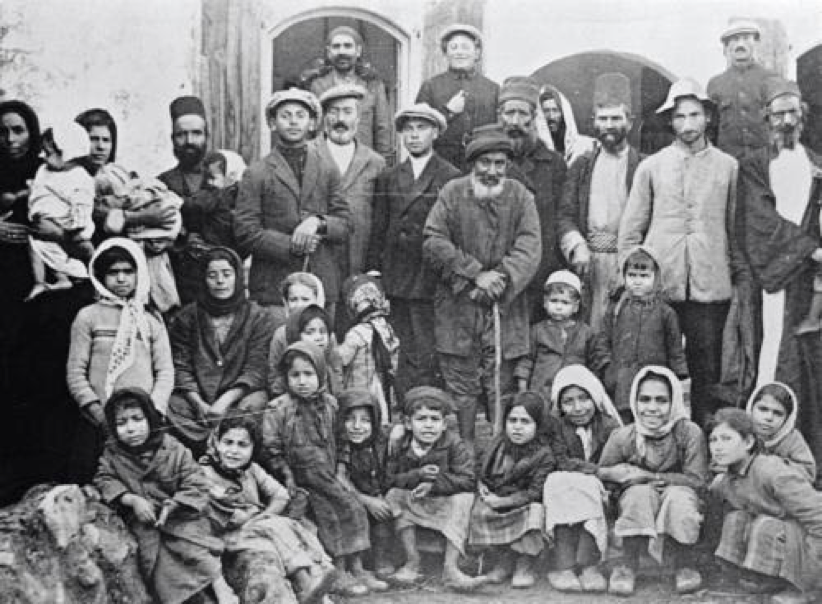
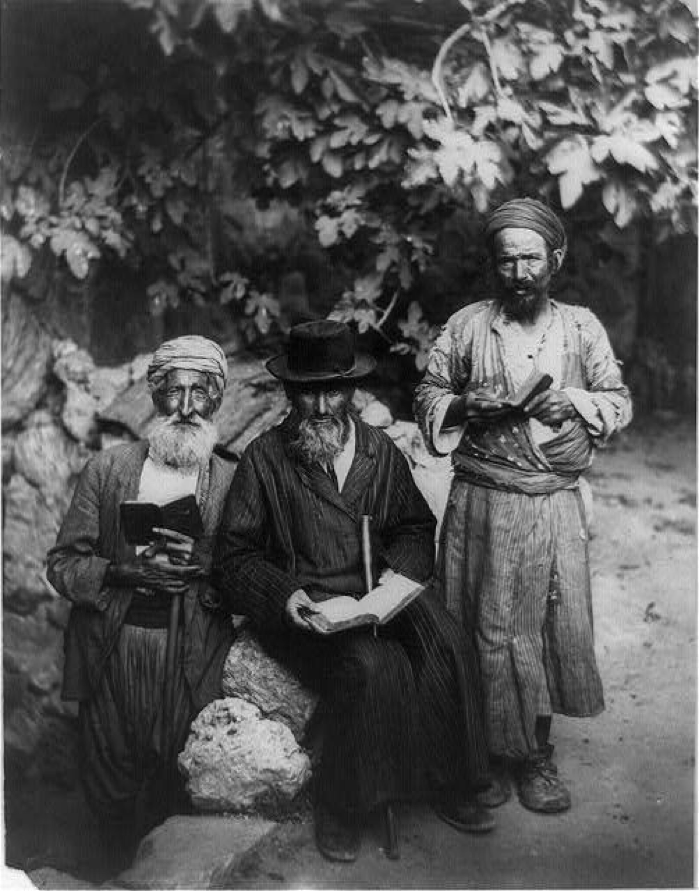
When Zionists declared independence and the return of Jewish sovereignty in the land of Israel, the founding fathers of Zionism understood that they were making a proclamation of the justice of the Jewish people’s return to sovereignty in their indigenous homeland. That is why Israel’s Declaration of Establishment proclaims:
“Eretz-Israel was the birthplace of the Jewish people. Here, their spiritual, religious and political identity was shaped. Here they first attained to statehood, created cultural values of national and universal significance and gave to the world the eternal Book of Books. After being forcibly exiled from their land, the people kept faith with it throughout their Dispersion and never ceased to pray and hope for their return to it and for the restoration in it of their political freedom.”
This is the original language of Zionism. This is about the Jewish people’s indigenous rights in the land of Israel. This is also about justice; the justice of Zionism. Thus, every chance we get, we need to remind people that Zionism is the first successful indigenous movement of a dispossessed and colonized people regaining sovereignty in their indigenous homeland.
The facts are on our side. Even though it is an oft-repeated mantra of anti-Israel activists that Israel is a “colonial outpost” or a “colonial settler-state,” there is indisputable evidence that the Jewish people are indigenous to the Land of Israel. Arabs, in contrast, originated in the Hejaz region of the Arabian Peninsula before they colonized much of the Middle East and Africa at the expense of many different indigenous populations (such as Copts, Yazidis, Assyrians, Amazighs and Jews).
Under the common-sense definition of Indigenous set forth in the United Nations Declaration on the Rights of Indigenous Peoples, the only living people who are uniquely indigenous to the land of Israel are Jews.
Click here to read more.
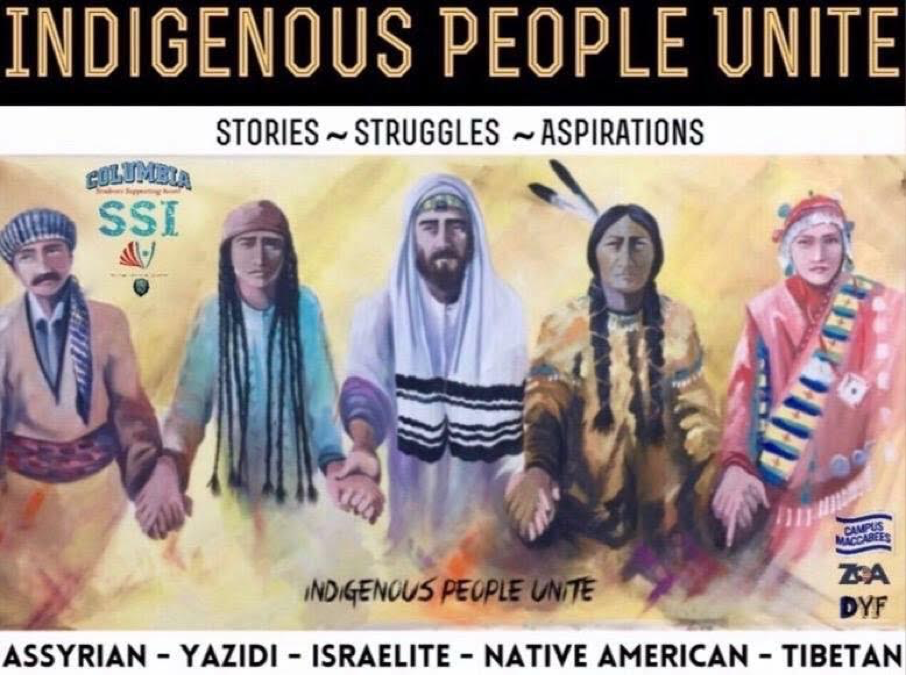
The Iron Wall:
The Iron Wall, Jabotinsky’s treatise— a cornerstone of Zionist thought— contextualizes the often misunderstood elements that underpin Zionism. Its legitimacy, necessity, and most importantly the justice it demands in the goal of liberating the exiled Jewish people via a revolutionary Return to Zion; their ancestral and indigenous homeland.
Zionism, the idea of one of humanity’s most hated and persecuted minorities returning to their native homeland to self-determine and be sovereign, is a radical notion. Like most radical ideas, Zionism elicits an emotional response- positive and negative. Ze’ev Jabotinsky understood that. In The Iron Wall, Jabotinsky addressed the misconceptions surrounding his feelings toward Arabs; our cousins. “Emotionally, my attitude to the Arabs is the same as to all other nations – polite indifference. Politically, my attitude is determined by two principles. First of all, I consider it utterly impossible to eject the Arabs from Palestine. There will always be two nations in Palestine – which is good enough for me, provided the Jews become the majority.”
Zionism, and the justness of its goals, exists irrespective of the Arabs living alongside us in our indigenous homeland; whether in the coastal plain, the Negev, Judea, or Samaria. The Jew seeks the same freedom and equality the nations of the world have been able to achieve through nationalism. To be represented in the international arena, not as a perpetual vagabond, but a nation rooted in its past, seizing the present, and preparing for the future. However, without a Jewish majority, the Land of Israel may once again become a place of Jewish exile, rather than redemption.
Indeed, all we seek is a majority in the Land of Israel; equal rights to all of the Land’s inhabitants is non-negotiable. Yet, the Jewish return was met with harsh violence and anti-Semitic propaganda. This is as it should be, for all native people resist the immigration of who they perceive as a foreign partner, Jabotinsky notes in the Iron Wall. They understand what we want, and act accordingly.
This is the moral misunderstanding. The belief that the Arab world will accept our immigration with “moderation,” understanding, and sympathy is a wishful thinking par excellence. As long as the Arab world (whether in their Palestinian or Saudi regional expression) refuses to accept the Jewish people as the aboriginal population of “Palestine” and/or refuses the right of Jews to exist outside of dhimmitude, the Jewish State will remain an anathema to their sensibilities.
Justice is justice, independent of the current reality. Justice enforced through strong will, the Iron Wall, is justice realized. Only with our intentions acted upon, fortified by this impervious wall, will justice become reality. Only with this Iron Wall will Israel’s enemies despair of their desire to destroy her. Only with this Iron Wall will Jews and Arabs coexist in peace, according to the laws of nature.

